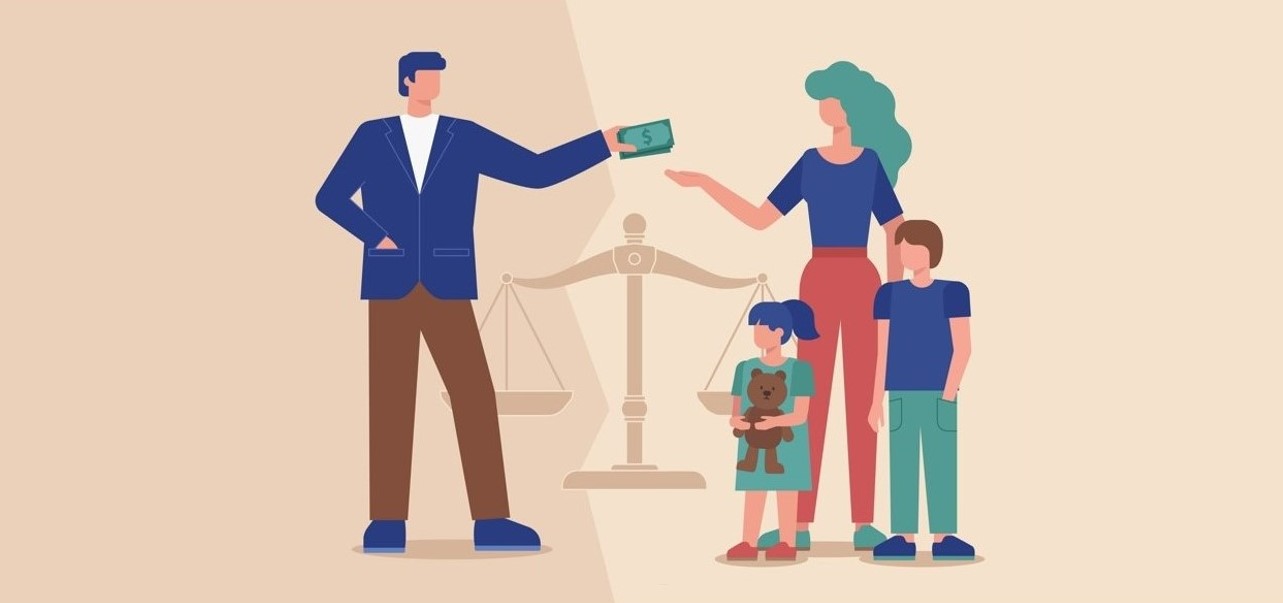By Gabriella Chan
Hong Kong, 14 July 2023: A divorced father ends up in prison for trying to avoid paying child support was the outcome of a notable case in the District Court recently, highlighting the common problem of late or non-payment of maintenance and the legal avenues for enforcement.
The defendant was charged by the Independent Commission Against Corruption with perverting the course of justice and perjury, the result of actions which had come to light in the course of a corruption investigation. A property agent, he had told the Family Court his financial circumstances were dire and thus he was granted relief from making a monthly maintenance payment of HK$2,500 to his ex-wife to support their child.
In fact, the ICAC investigation revealed he had understated his income over the course of 20 months by some HK$3 million, much of it earned in sales commissions. He had filed false documents with the Family Court, including fake payment slips and bank statements, to cover up his earnings. The District Court took a dim view of his behaviour and sentenced him to 18 months in jail.
Enforcement of child maintenance orders can be problematic, as outlined in a research paper presented to the Legislative Council in December 2020. It noted there were some 58,400 single parents rearing their children aged below 18 in Hong Kong, accounting for 8% of all families living with children. Yet, a survey by the Census and Statistics Department of divorcees entitled to maintenance found 41% could not receive full payments from their ex-spouses. Further, 88% of those who were owed money did not apply to the court for arrears recovery, partly on the grounds of complicated legal procedures, especially so for poor single parents needing legal aid. The LegCo paper noted that up to one-third of single-parent families lived below the poverty line, thus exacerbating the problem.
Still, it is worth exploring the options available to someone whose ex-spouse is refusing to make maintenance payments. Essentially, there are three:
Judgment summons: The ex-spouse is called to court to reveal his or her financial circumstances. It should be noted this is best done sooner rather than later, as the court may refuse to enforce an order for payment of arrears more than 12 months overdue. The judge has the power to make a new payment order or, according to Rule 87 of the Matrimonial Causes Rules (Cap 179A), can commit the ex-spouse to prison if they cannot justify their failure to pay. Likewise, they can be sent to prison if, having failed to turn up for the first hearing, it is adjourned and they again fail to appear.
Attachment of Income Order (AIO): Under the Matrimonial Proceedings and Property Ordinance (Cap. 192), the court can make an AIO, whereby the whole or part of the amount payable under the maintenance order is to be paid directly from the payer’s source of income, for example the employer, to the specified payee.
Prohibition order: This is served on the Director of Immigration and prevents the ex-spouse from leaving Hong Kong pending recovery of the arrears.
While these provisions are available, how often and effectively they are enforced is questionable. Five months ago in LegCo, responding to a series of questions from lawmaker Doreen Kong regarding the “worsening” problem of maintenance payment defaults, Secretary for Home and Youth Affairs Alice Mak revealed some telling figures. In 2022, the courts held 593 judgment summons hearings; there were 22 applications for an AIO and just five were granted. She did not reveal a figure, if any, for prohibition orders. However, just 89 people were given legal aid to pursue a claim for recovery of maintenance arrears, down from 154 in 2018.
It is also worth recording that LegCo has, in the past, debated the merits of establishing an independent board to collect maintenance payments, as is the case in some other jurisdictions, notably New Zealand. Two supportive motions were passed by lawmakers in 1997 and 1999, but the government rejected the suggestion, citing public scepticism about conferring “wide powers on a public body” just for the purpose of private debt collection. Nevertheless, in June 2020 a motion was passed in LegCo calling for a maintenance board to facilitate collection of payments, along with an emergency fund to help poor single parents whose ex-spouses were in arrears.
These suggestions were further explored in a report published in November last year by the Family Council. Among various proposals, it recommended examining the feasibility of establishing a so-called Maintenance Assurance Scheme to strengthen enforcement and provide temporary financial aid. The government has given a lukewarm response, noting problems with similar schemes overseas and warning such measures would need “careful consideration”.
Amid the legal options and policy deliberations, it is important that separated and divorced parents are aware of their rights and responsibilities towards each other and their children, including any financial support which is deemed necessary. Here at BC&C, we have experienced Family Law solicitors ready to listen and assist.
Gabriella Chan is a Senior Associate with BC&C. She focuses her practice on Family Law, being proficient in a wide range of matters arising from the matrimonial context, and is also active in the Hong Kong Family Law Association. She can be contacted at Gabriella@boasecohencollins.com.



